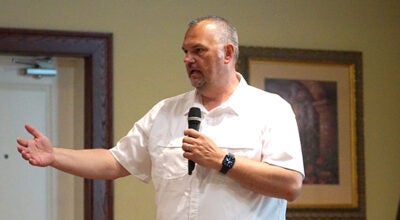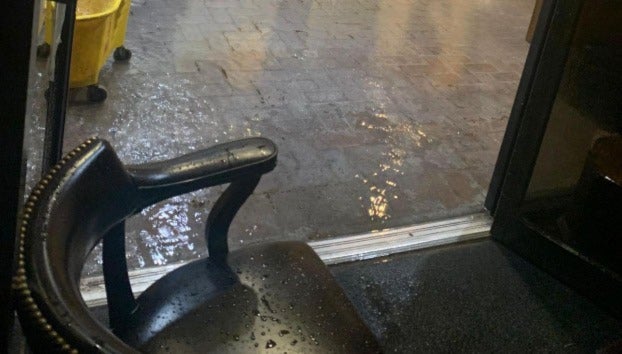Local officials relieved by Attorney General’s prison decision
Published 1:44 am Saturday, February 25, 2017
NATCHEZ — U.S. Attorney General Jeff Sessions announced Thursday the federal government will continue its use of private prisons, and local officials say that is good news for Adams County.
Sessions signaled Thursday his strong support for the federal government’s continued use of private prisons, reversing an Obama administration directive to phase out their use. Stock prices of major private prison companies rose at the news.
Sessions issued a memo replacing one issued last August by Sally Yates, the deputy attorney general at the time.
That memo followed a harshly critical government audit of privately run prisons, including Adams County Correctional Center, which U.S. Department of Justice officials said remained plagued by the same deficiencies that existed when a 2012 prison riot led to the death of one of its correctional officers.
ACCC is owned by CoreCivic, formerly Corrections Corporation of America, and is one of 12 private prisons contracted by the U.S. Bureau of Prisons to house federal inmates.
DOJ officials said in the report they “were deeply concerned” by the significant deficiencies in health care and staffing levels at ACCC.
Following the report’s release, CoreCivic officials said they disagreed with the findings in the report.
City of Natchez and Adams County officials met in August with ACCC officials to discuss the future of the prison, with local leaders offering their support to the prison.
Natchez Mayor Darryl Grennell and Adams County Board of Supervisors President Mike Lazarus said Friday the announcement to continue the use of private prisons was good news for Adams County.
“I’m glad to hear that,” Grennell said. “We need the jobs here, and (the prison) also supports the local retail community,” Grennell said.
Lazarus said Adams County relies on the prison not only to provide jobs, but as a significant contributor to the tax base.
“I think it’s very positive news for Adams County, and I’m glad it worked out,” he said.
In August, Yates’ memo directed the federal Bureau of Prisons to begin reducing and ultimately end its reliance on contract facilities. Yates, in her announcement, said private facilities have more safety and security problems than government-run ones and were less necessary given declines in the overall federal prison population.
But Sessions, in his memo, said Yates’ directive went against longstanding Justice Department policy and practice and “impaired the Bureau’s ability to meet the future needs of the federal correctional system.” Sessions said he was directing the BOP to “return to its previous approach.”
The federal prison population — now just under 190,000 — has been dropping due in part to changes in federal sentencing policies over the last few years. Private prisons now hold approximately 21,000 inmates in 12 facilities, a fraction of the total BOP population, the Justice Department said Thursday.
Yet the federal prison population may increase again given Sessions’ commitment to aggressive enforcement of drug and immigration laws, and his focus on combating violent crime.
The latest memo — issued just two weeks after Sessions was sworn in as attorney general — could be part of a more expansive rollback of criminal justice policies enacted by the Obama administration Justice Department, including directives against seeking mandatory minimum punishments for nonviolent drug offenders.
The private prison industry has been a major contributor to Republican political campaigns, particularly in recent years.
As a candidate, President Donald Trump said he supported the use of private prisons, and the shares of the major companies — including Geo Group and CoreCivic Co., formerly Corrections Corporation of America — jumped after the election amid anticipation that the incoming administration would again turn to them.
“I do think we can do a lot of privatizations and private prisons. It seems to work a lot better,” Trump told MSNBC in March.
The federal government started to rely on private prisons in the late 1990s because of overcrowding. Many of the federal prison inmates in private facilities, including the Adams County facility, are foreign nationals. The Yates policy did not extend to prisons used by Immigration and Customs Enforcement, which hold tens of thousands of immigrants awaiting deportation.
Immigration and human rights advocates have long complained about conditions in privately run prisons. An inspector general audit from last August said problems at private prisons in recent years included property damage, injuries and the death of a corrections officer, Catlin Carithers, in the Adams County riot in 2012.
The Associated Press contributed to this report.





